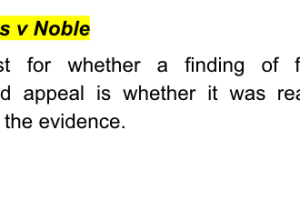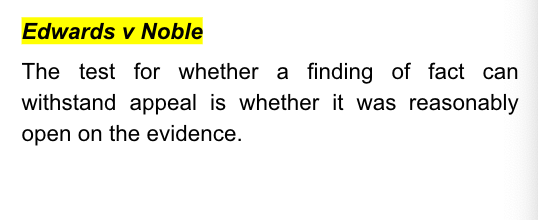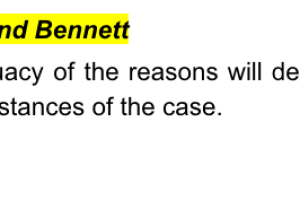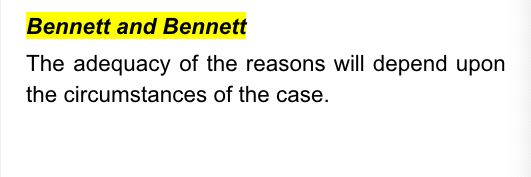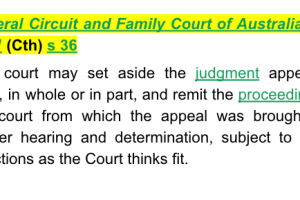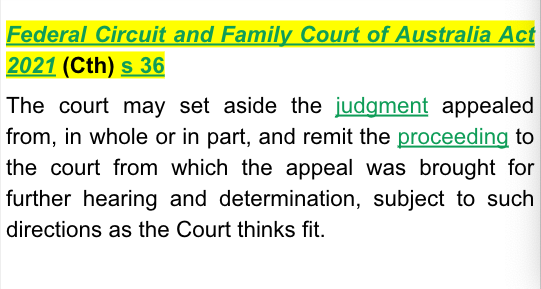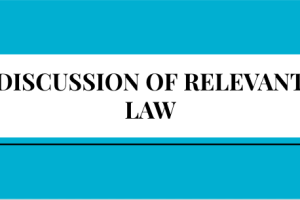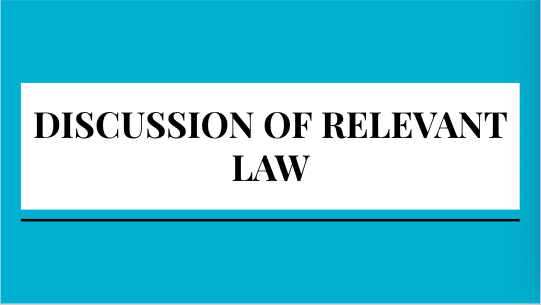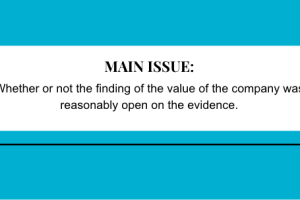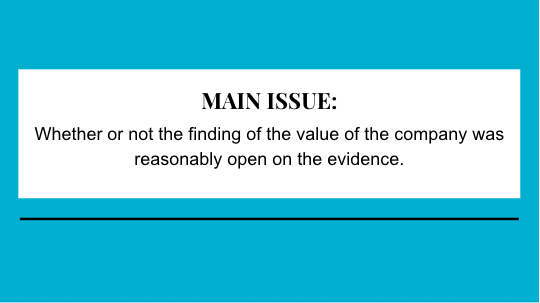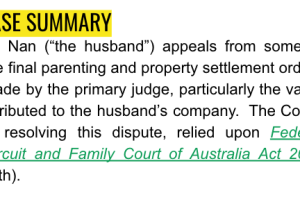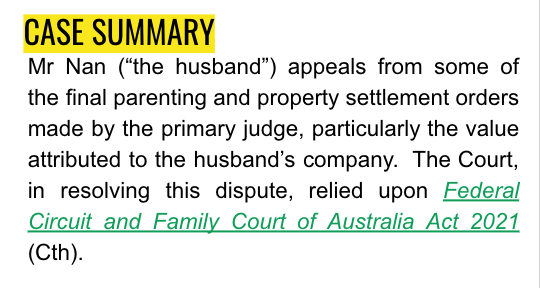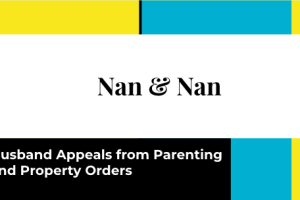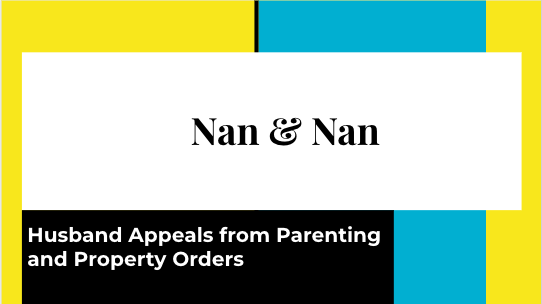- · 4784 friends
Husband Appeals from Parenting and Property Orders

Nan & Nan [2022] FedCFamC1A 180 (7 November 2022)

Mr Nan (“the husband”) appeals from some of the final parenting and property settlement orders made by the primary judge, particularly the value attributed to the husband’s company. The Court, in resolving this dispute, relied upon Federal Circuit and Family Court of Australia Act 2021 (Cth).

Facts
The husband was born in Country C in 1980 and is presently aged 42 years. The wife was born in Country C in 1983 and is presently 39 years. The parties were married in 2008, migrated to Australia in 2009, and separated here in October 2018. There is one child born to the parties’ relationship, who is now 9 years old. As a result of the primary judge’s orders, the child lives mainly with the mother and spends five nights per fortnight with the father.
As found by the primary judge, the property of the parties’ relationship consisted of the former matrimonial home, the husband’s share in a property he purchased post separation with family members, the husband’s interest in his company Company D (“the company”), the parties’ bank accounts and their superannuation. By Application in an Appeal filed 13 October 2022, the husband sought that the Court receive further evidence in the appeal, comprising an affidavit of Mr B also filed 13 October 2022. The wife did not oppose that application. The husband asserts that the Learned Trial Judge erred in making an order (Order 11a) providing liberty to the parties to remove the child from the Commonwealth for overseas travel for the child on not more than one occasion every 2 years for each party unless otherwise agreed. The wife conceded that the primary judge erred as that ground contends.
The husband further argued that the Learned Trial Judge erred in including the sum of $192,143.00 representing the value of [the company] referred to in a 2021 draft financial statement submitted to the NAB) in the asset pool available for distribution between the parties.

Issue
Whether or not the finding of the value of the company was reasonably open on the evidence.

Applicable law



Analysis
The entirety of the primary judge’s reasons for the restriction imposed on the parties’ ability to take the child overseas was at [56], where she said: "Neither party adduced any evidence in relation to the other, very minor differences between their positions with respect to parenting, which related to the duration and frequency of overseas travel and who is to retain the child’s passport. In the absence of any evidence of any likely negative impact on [the child’s] best interests of doing so, in light of the fact that [the child] will be living in the primary care of his mother, I will make orders in accordance with her proposal."
It is simply not possible to discern any reason for the restriction on the frequency of the child’s travel overseas from that paragraph. If her Honour were saying that a lack of negative impact equated to it being in the child’s best interests, then not only is the reasoning deficient, but justice is not able to have been seen to be done. Although counsel for the husband contended that implicitly the primary judge accepted that the husband had lied to NAB, in that the financial report was false, on the contrary, it seems clear from the third and fifth sentences of [98] that her Honour was plainly not so satisfied. That then left the financial report as evidence of the value of the company as at 30 June 2021, which the primary judge was free to accept and act upon. The husband failed to satisfy the primary judge that his oral evidence ought be accepted over the financial report.
Conclusion
By consent, the Application in an Appeal filed 13 October 2022 is granted, and the affidavit of Mr B filed 13 October 2022 will be admitted into evidence in the appeal. Save that paragraph 11(a) of the Orders of the primary judge be discharged and in lieu thereof it be ordered by consent that: (a) each of the parties be at liberty to travel overseas with the child on not more than 2 occasions per year unless otherwise agreed between the parties; the appeal is otherwise dismissed. Within 28 days, the appellant is to pay the respondent’s costs in the sum of $7,128.68.


